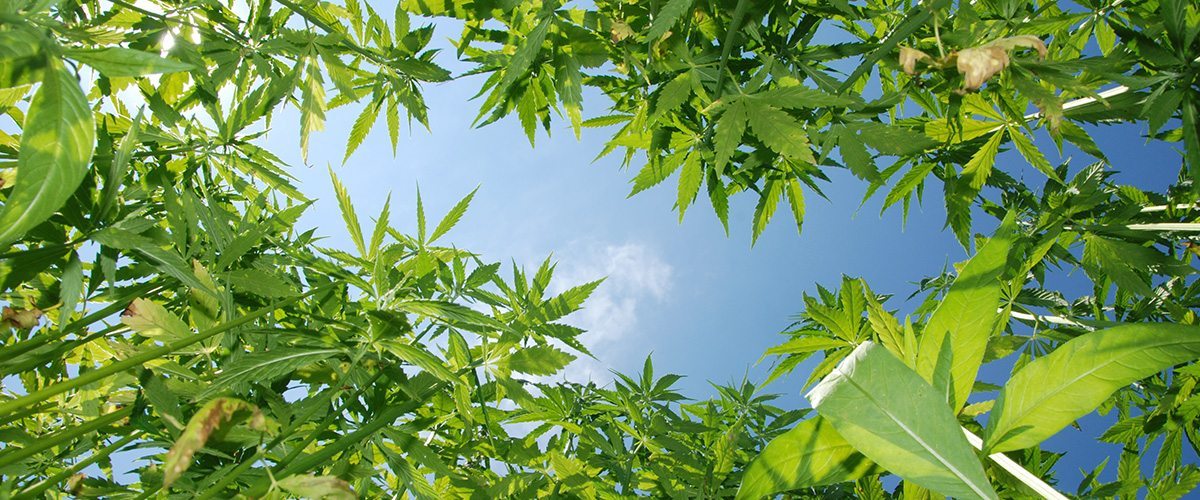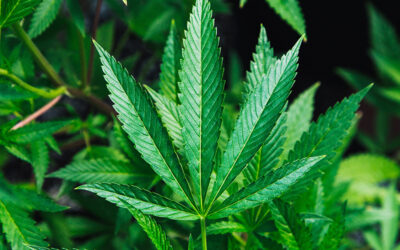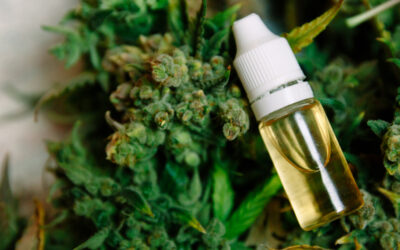When researching products containing CBD, you may have come across the term industrial hemp being used to refer to the specific low THC hemp cultivars used to make CBD hemp oil. While the term industrial brings up imagery of dirty factories and polluting smokestacks, the truth behind hemp cultivation for our hemp oil products is much less sinister.
In fact, high quality products made with “industrial hemp” are perfectly safe for commercial use. This is especially true when the hemp is grown without pesticides, herbicides, and chemical fertilizers like the hemp used to extract the CBD hemp oil in our products. So how did we come to use a term like industrial to describe an otherwise innocuous plant?
Here, we will look at the legality of hemp, uses of industrial hemp, and how industrial hemp fits into the conversation around CBD hemp oil.
Industrial Hemp During Cannabis Prohibition
To better understand how we classify cannabis in to hemp and marijuana, it helps to know some history about cannabis in the U.S. In 1937, the U.S. government passed the Marihuana Tax Act, essentially prohibiting the cultivation, sale, and possession of the entire cannabis genus. The act made no distinction between hemp and marijuana, grouping all varietals under a single designation.
In 1970, the Controlled Substances Act passed during the Nixon administration and placed cannabis under Schedule I, reserved for the nation’s most dangerous drugs. Again, no immediate distinction was made between high-THC marijuana and low-THC hemp. Under these regulations, the DEA maintained that marijuana and hemp are one in the same, despite the varying characteristics of each plant.
The term industrial hemp itself is found in North Dakota’s 1997 House Bill 1305, which set up feasibility research into industrial hemp production in the state and seems to have solidified the use of the word “industrial” in future U.S. legislation.
Following years of hemp cultivation pilot programs across the U.S., Congress passed the 2018 Farm Bill, legalizing hemp in the U.S. for cultivation as well as for the commercial and industrial uses in America.
Hemp legalization came to pass due to a provision added to the 2018 Farm Bill that fully legalized the hemp industry in the U.S. The provision, officially known as the Hemp Farming Act of 2018, was introduced by Senate Majority Leader Mitch McConnell (R-Ky.)
The law removed hemp completely from the Controlled Substances Act (CSA) and allows it to be sold as an agricultural commodity and be used commercially in the manufacturing of products. That means that all hemp products are now federally legal in the U.S., including those containing CBD.
Learn about the difference between marijuana and industrial hemp.
What is Industrial Hemp?
Suddenly, the term “industrial hemp” starts to make sense when used to differentiate between intoxicating marijuana and fibrous hemp, both of which are in the cannabis genus. After all, hemp does indeed possess a daunting number of industrial uses.
Hemp pulp or fiber can be used for paper, rope, or textile clothing. Hemp can also be used in naturally biodegradable plastic, which is more environmentally responsible than traditional petroleum based plastics, and can replace petroleum as a fuel when made into biodiesel. Finally, hemp fiber even works in crafting building materials like acoustic and thermal insulation, fiber board, and even hemp building blocks.
However, hemp can also be used in food for both humans and animals. Hemp seeds can be eaten raw or ground into meal, can be used to make hemp milk, and can be pressed into oil. Hemp seed also makes up much of the bird seed and farm animal feed used in Europe. Finally, hemp can also be an effective source for cannabidiol (CBD), the primary cannabinoid in hemp, because it doesn’t contain the high levels of THC found in marijuana.
It is in this role in human consumption that the term “industrial hemp” takes on its undesired tone. Just as you probably wouldn’t want to drink “industrial milk” or use “industrial cooking oil”, many consumers balk at the term “industrial hemp”, especially when describing the ingredients in their cosmetics, lotions, or CBD oil wellness products.
Then why do we use the term industrial? It could be linked to the need to distance industrial hemp from “Indian Hemp”, the long disused term once referring to marijuana. It is just as likely meant to be a euphemism to describe the intended final uses for hemp: more emphasis on legitimate commercial products and less on illicit uses.
What is the Difference Between Hemp and Industrial Hemp?
In practical terms, hemp and industrial hemp are one in the same. The term industrial hemp can be seen as a catch all term for any hemp that is used commercially, regardless of the end product.
While many may connect industrial hemp production to emerging economies in Asia, the fact is that France is the leading producer of the world’s hemp. Of the 30 countries that grow hemp, nearly ⅔ are in Europe, often on small family owned farms and grown free of pesticides, herbicides, or chemical fertilizers that could contaminate final products or negatively impact local ecosystems.
Currently, there are 26 varieties of low THC hemp approved by the EU with less than 0.2% THC. In the U.S., where hemp cultivation is just in its infancy, the THC threshold to be considered hemp is 0.3% by dry weight.
While industrial hemp and hemp are the same, not all hemp available to consumers is of the same quality.
Is All Hemp the Same?
When shopping for hemp products, including CBD oil products, you should look for hemp that is conscientiously grown to avoid damaging the environment or passing dangerous contaminants on to consumers.
At Medical Marijuana, Inc., your safety is our first priority. Here is how we craft our top quality CBD hemp oil products to protect their integrity.
The top quality hemp used in Medical Marijuana, Inc. products is cultivated on a generational farm in the Netherlands where hemp has been grown for decades by knowledgeable and experienced farmers without the use of dangerous chemicals. Our CBD hemp oil is then extracted from our hemp using non-toxic carbon dioxide. We thoroughly test our CBD at three points in our manufacturing process to guarantee their safety and consistency.
Want to read more about our safety standards?
Learn More
You can learn more about CBD oil, the types of CBD products available, reasons to use CBD oil, and other CBD topics on our CBD oil education page.






